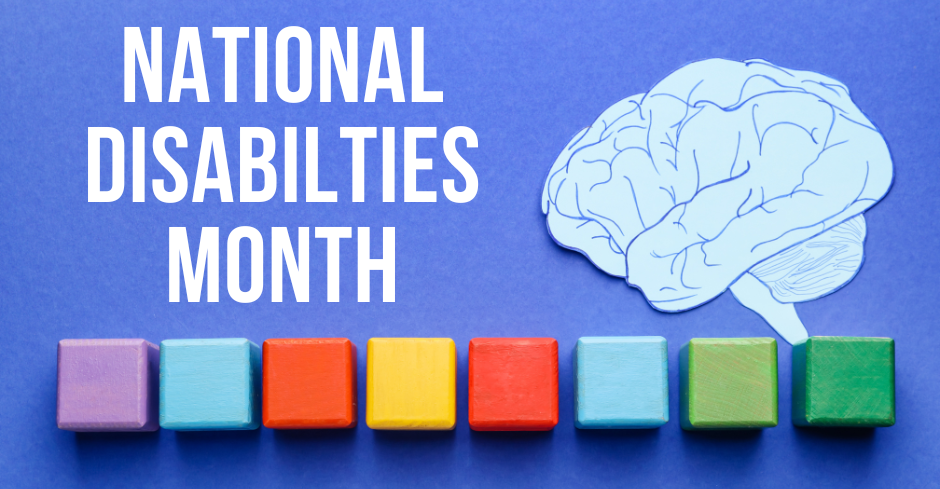Why We Celebrate
People with disabilities were once relegated to the classroom at the end of the hallway or dumped into institutions where they stagnated, their unique skills and abilities unrecognized and undeveloped. President John F. Kennedy in the 1960’s brought attention to people with Developmental Disabilities (DD) by convening a Presidential Panel focused on those persons and their exclusion from education, employment, and community participation.
Why is this focus important? Because including people with IDD into education, employment, and community participation:
- Increases revenue
- Increases income
- Increases profit
- Increases productivity
- Reduces turnover, and
- Increases personal satisfaction.
Who experiences life with developmental disability?
People with:
- Autism Spectrum Disorder
- Cerebral Palsy
- Intellectual Disability
- Attention Deficit Hyperactivity Disorder
- Learning Disabilities
- Down Syndrome
- Fetal Alcohol Syndrome
- Spina Bifida
People with a DD you may know:
- Actor Anthony Hopkins (Autism Spectrum Disorder)
- Actor and Comedian Whoopi Goldberg (Learning Disability)
- Scientist Stephen Hawking (Amyotrophic Lateral Sclerosis, similar to CP)
- Businessman Elon Musk (Autism Spectrum Disorder)
- English race car driver Nicolas Hamilton (Cerebral Palsy)
- Actor Keira Knightley (Learning Disability)
- Academic and Inventor Temple Grandin (Autism Spectrum Disorder)
- Olympian Michael Phelps (ADHD)
- Environmental activist Greta Thunberg (Autism Spectrum Disorder)
- Major League Basketball Star Magic Johnson (Learning Disability)
- Physicist Albert Einstein (widely speculated to have Autism Spectrum Disorder)
- Singer Susan Boyle (Autism Spectrum Disorder)
Where would we be without their contributions?
How You Can Celebrate
There are many ways you, your family, your school district, and your community can celebrate National Disabilities Awareness Day:
- Get educated! Learn about the Americans with Disabilities Act (the ADA) and how many Americans with disabilities make the world a better place.
- Support local organizations by volunteering or donating.
- Host a panel discussion by inviting people with DD to share their experiences.
- Hold an art exhibit with work created by artists with DD.
- Improve the accessibility of your workplace and your community.
- Use social media to raise awareness.
- Promote inclusive language.
- Participate in mentoring for people with disabilities.
Need help navigating the educational process for your student? Contact experienced attorneys for help at 609-409-3500.


